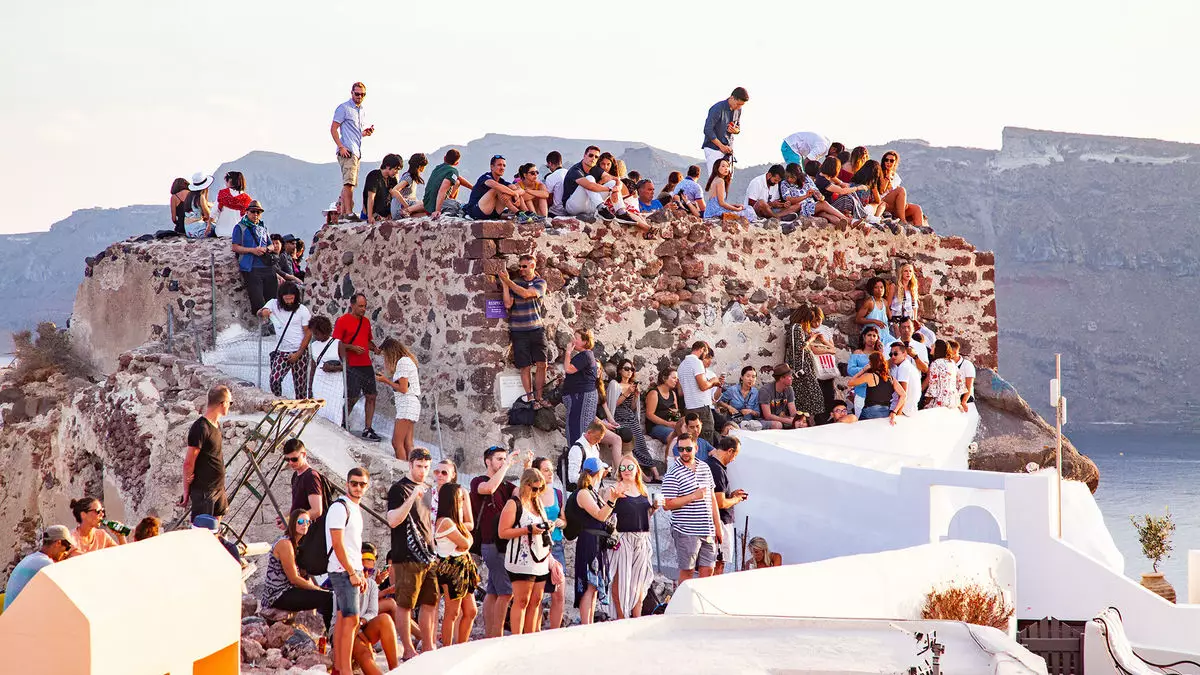Greece, known for its beautiful islands and rich history, is contemplating restrictions on cruise traffic to its most popular destinations. Prime Minister Kyriakos Mitsotakis has suggested that the government may limit the number of berths available to cruise ships or introduce a bidding process for them to call at Greece’s top islands. This proposal comes as a response to the overcrowding and strain that mass tourism has placed on these picturesque locations, particularly Santorini and Mykonos.
Tourism plays a crucial role in Greece’s economy, accounting for about a quarter of the country’s economic output. Despite the challenges posed by the COVID-19 pandemic, Greece welcomed 32.7 million visitors last year, marking an 18% increase from the previous year. While this growth has been beneficial for the country in terms of revenue and employment, it has also led to overcrowding and deteriorating conditions in some of its most sought-after destinations.
The Pressure on Santorini and Mykonos
Santorini and Mykonos, in particular, have faced significant challenges due to the increasing number of cruise ships calling at their ports. Last year, Santorini received 800 ships carrying 1.3 million passengers, while Mykonos saw 749 cruise ship visits, representing a 23% increase from the previous year. The influx of tourists has led to overcrowding, long lines at popular attractions, and concerns about the overall visitor experience.
Prime Minister Mitsotakis emphasized the urgency of addressing the issues facing Santorini and Mykonos, highlighting the importance of maintaining a balance between tourism and preservation. The government is considering implementing measures to manage cruise traffic more effectively, such as extending the cruise season, developing a berth allocation system, and creating destination management plans. These initiatives aim to promote sustainable tourism practices and protect the islands’ natural and cultural heritage.
Global Efforts to Address Overtourism
Greece is not the only country grappling with the challenges of overtourism and cruise ship congestion. Cities like Amsterdam, Barcelona, and Venice have also taken steps to limit or regulate cruise traffic to alleviate the strain on their infrastructure and environment. The cruise industry, represented by CLIA, has introduced a five-year action plan to Greece, focusing on collaboration and responsible tourism practices to mitigate the negative impacts of cruise ship tourism.
The debate over cruise ship tourism in popular Greek islands underscores the need for a more sustainable approach to travel and tourism. By implementing measures to manage visitor numbers, enhance infrastructure, and preserve the islands’ unique identity, Greece can strike a balance between economic growth and environmental conservation. It is essential for all stakeholders, including government authorities, tourism operators, and local communities, to work together towards a more responsible and sustainable tourism model for the benefit of both present and future generations.

